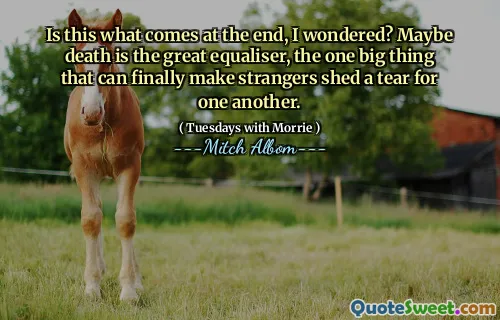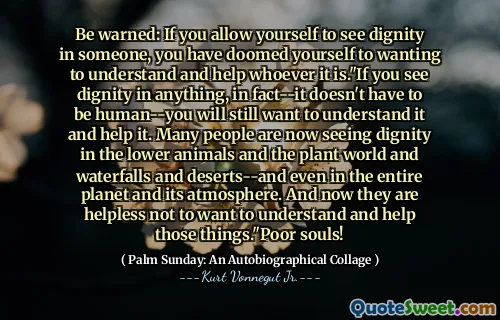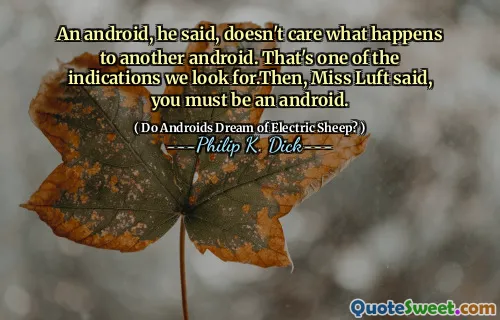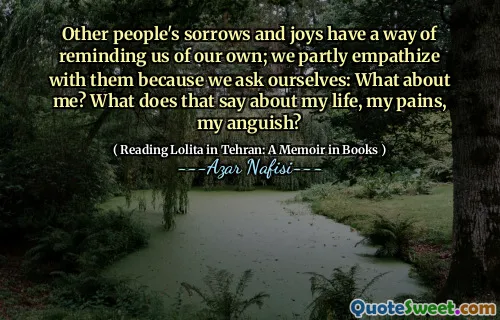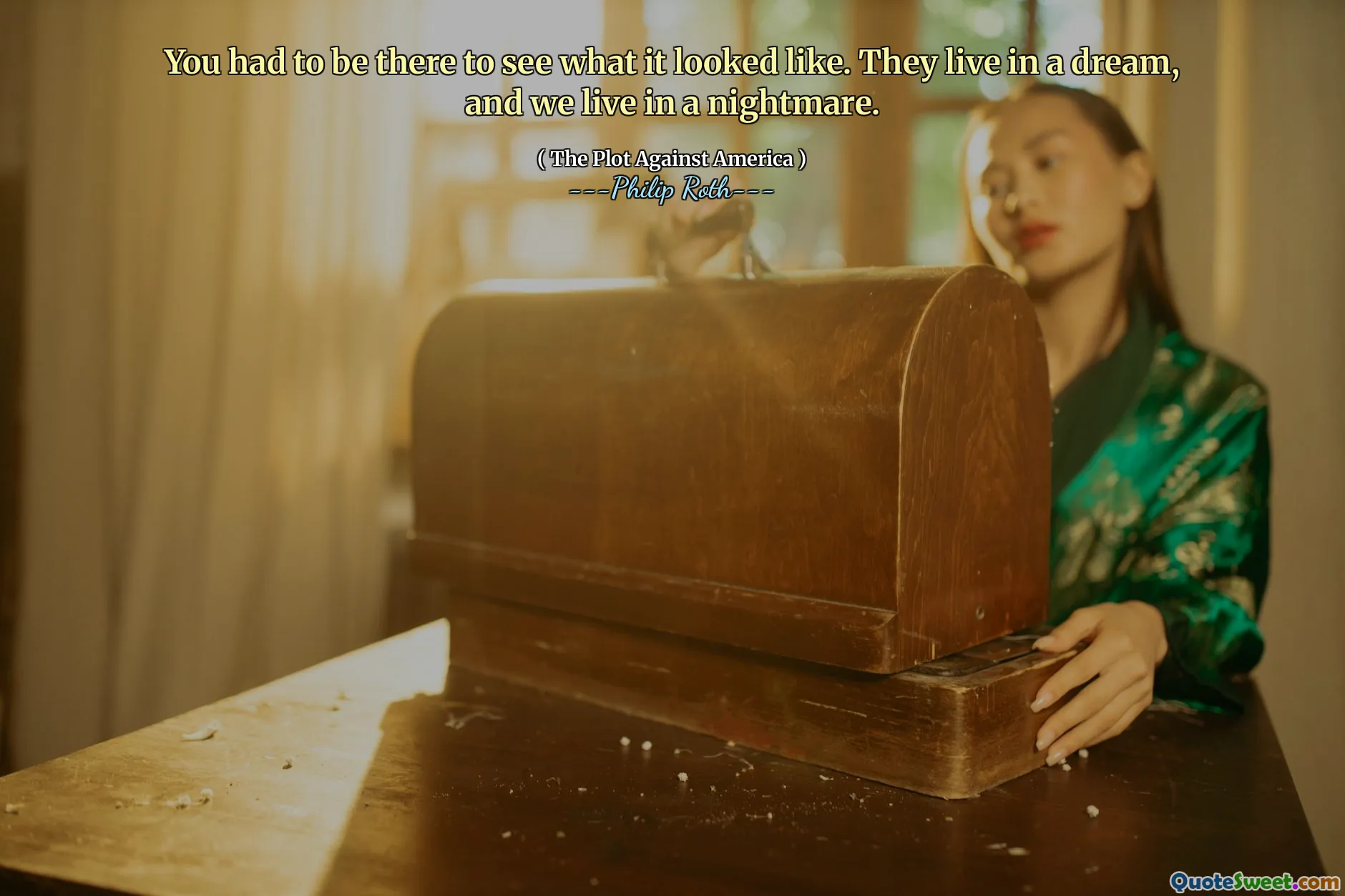
You had to be there to see what it looked like. They live in a dream, and we live in a nightmare.
[Markdown format] This quote encapsulates the profound disparity between perception and reality, emphasizing how firsthand experience shapes understanding in ways that secondhand accounts cannot capture. The phrase "You had to be there to see what it looked like" underscores the limitations of observation from a distance—no matter how vividly someone else describes a scene or experience, it can never truly substitute for having firsthand knowledge. This sentiment resonates deeply in a variety of contexts, from personal memories to societal narratives. When dealing with complex situations, especially in times of upheaval or chaos, the way things appear to outsiders might be fundamentally different from how they are perceived by those embedded within the situation.
Furthermore, the contrast between "they live in a dream" and "we live in a nightmare" evokes a sense of alternate realities that different groups or individuals might inhabit based on their circumstances, perceptions, or hopes. Dream states symbolize aspiration, illusions, or hope—a kind of mental sanctuary—while nightmares represent fear, trauma, or despair. This juxtaposition invites reflection on subjective reality: what is a nightmare to one might be a comforting dream to another. It challenges us to question our assumptions about others’ experiences and recognize the depth of personal perception.
From a societal perspective, the quote suggests that understanding the true nature of different lived experiences requires more than observation; it necessitates empathy and immersive insight. It reminds us that reality is often layered, complex, and deeply personal. Recognizing these differences can foster compassion, reduce misunderstandings, and motivate deeper engagement with perspectives we might otherwise dismiss or overlook. Overall, this quote encourages an awareness of the limitations of superficial understanding and underscores the importance of genuine empathy and experience in truly apprehending the world around us.
